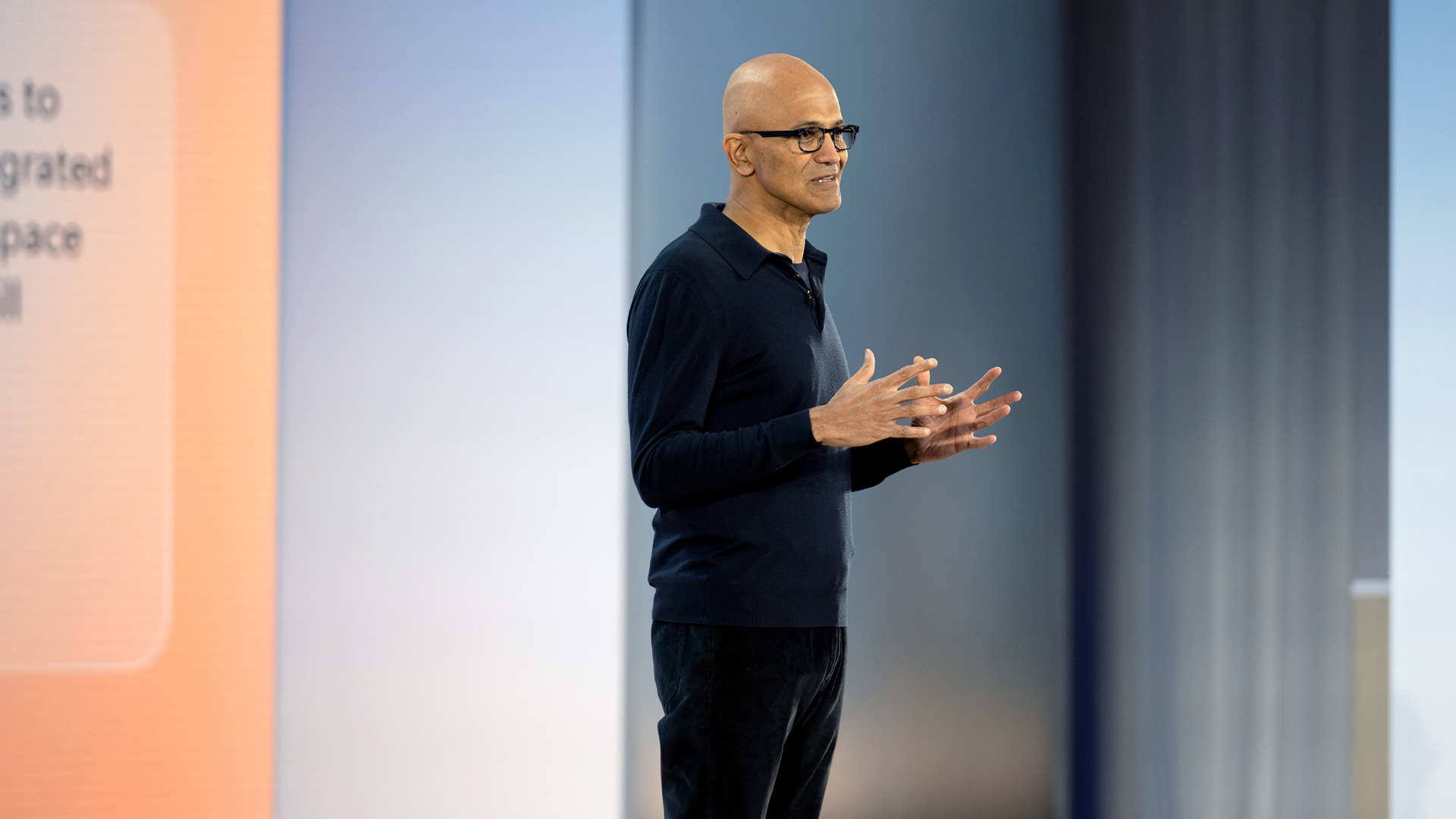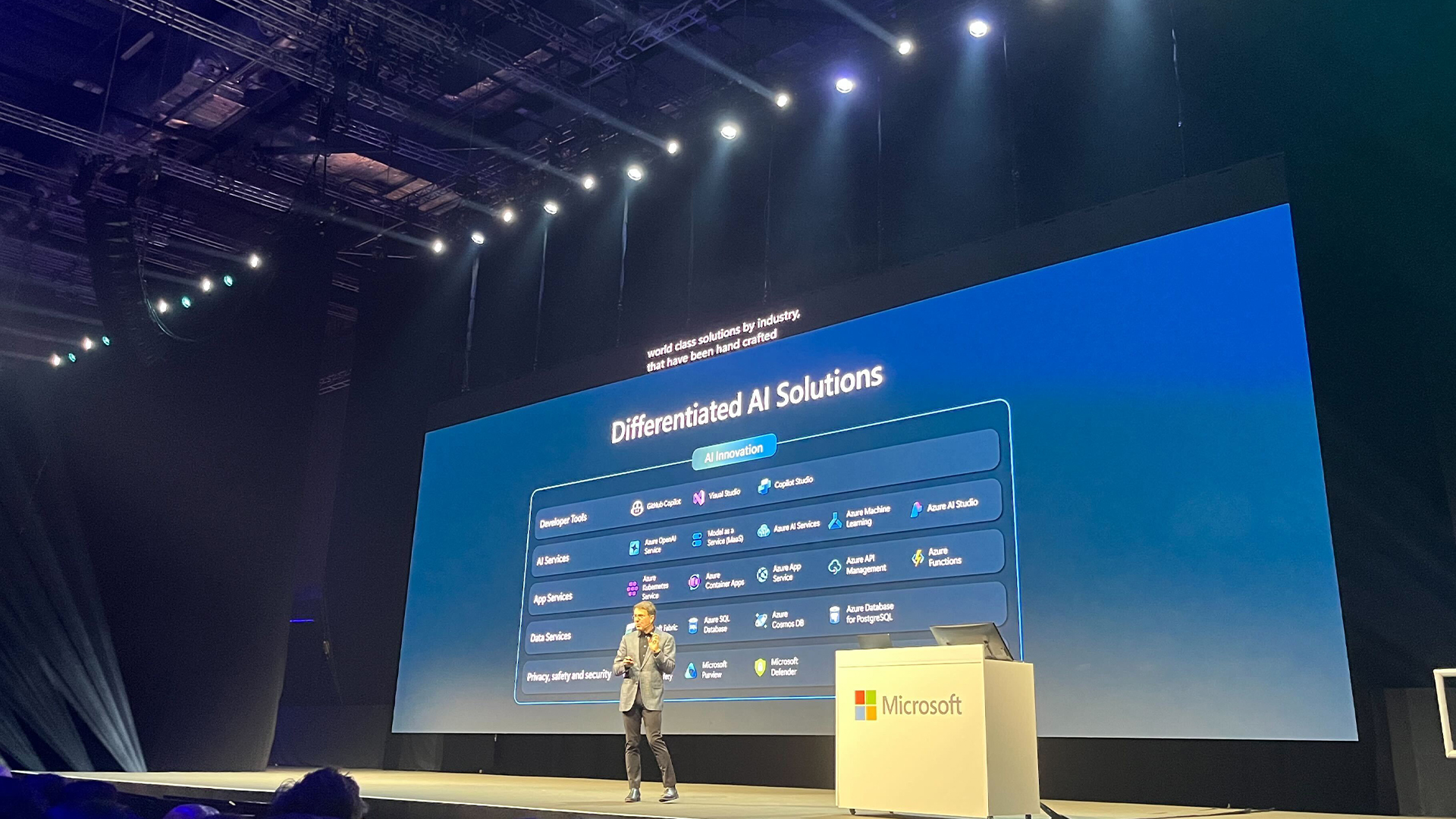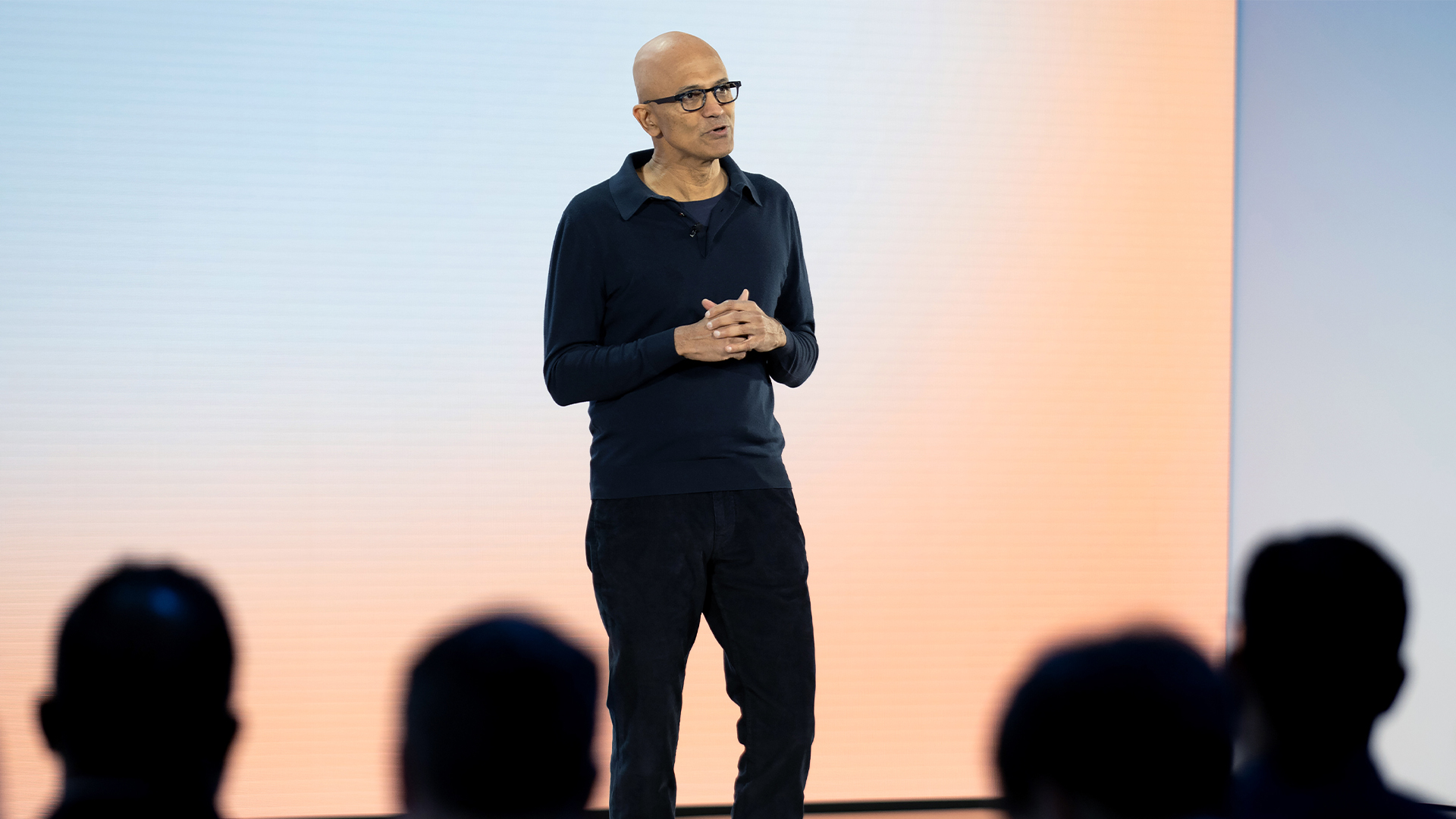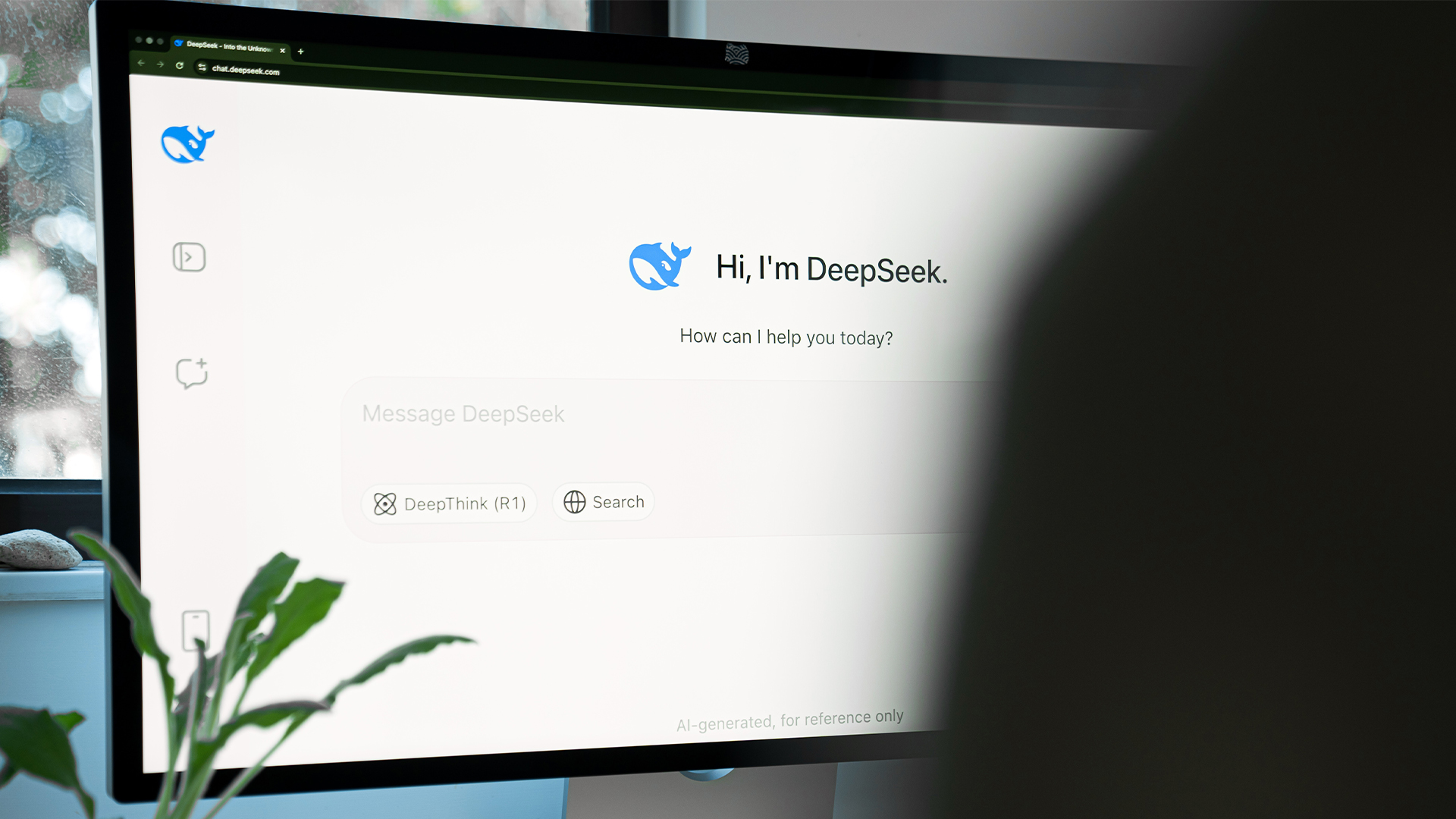Microsoft is using AI to get its nuclear projects approved in the US
Microsoft is using an AI model to help speed up the approval process on nuclear reactor projects


Microsoft is using large language models (LLMs) to expedite the approval process for nuclear power projects that will fuel its future artificial intelligence (AI) and supercomputing energy requirements.
A team at Microsoft has spent the previous six months training an AI model with US nuclear regulations and licensing documents to assist with generating paperwork for nuclear power projects, according to the Wall Street Journal.
The tech giant hopes the model will help speed up the lengthy and costly approvals process for nuclear power projects using the latest reactor technologies.
The energy demands of AI systems are expected to be a significant constraint for organizations moving forward, particularly for hyperscalers hosting data centers underpinning the biggest foundation models.
As hyperscalers grow and these models become more sophisticated and provide new functionalities, their energy demands will soar.
Microsoft’s senior director Michelle Patron said if the company wants to scale its models in a sustainable way it will need to use every weapon in its arsenal, including AI.
“If we're going to do that [grow] carbon-free, we're going to need all the tools in the tool kit,” she told the WSJ.
Get the ITPro daily newsletter
Sign up today and you will receive a free copy of our Future Focus 2025 report - the leading guidance on AI, cybersecurity and other IT challenges as per 700+ senior executives
Microsoft nuclear power ambitions are gathering pace
In September 2023, Microsoft made its nuclear ambitions clear by posting a job description for a ‘principal program manager for nuclear technology’.
The program manager was sought to lead a technical investigation using small modular reactors (SMRs) to provide energy for Microsoft’s AI and cloud computing data centers.
SMRs can generate around one-third of the production capacity of conventional large nuclear reactors and their smaller footprint gives added flexibility for site selection.
Its modular design also means deployment is far simpler, where manufacturing facilities can fabricate SMR units to be shipped and installed across a wide range of locations, driving down installation and design costs.
With these advantages, SMRs present a tempting value proposition for reliable green energy production, but some SMR developers in the UK have called for planning rules to be relaxed as they don’t reflect the flexibility SMRs can bring.
RELATED RESOURCE

The enterprise’s guide for Generative AI
Make the most of the opportunities GenAI offers
DOWNLOAD NOW
Microsoft faces a similar challenge in the US, with the Vogtle Unit 3 nuclear power plant that came online in July 2023 being the only nuclear power project to open since 2016.
At the moment, NuScale Power is the only SMR developer to have had its design approved by the US’s Nuclear Regulatory Commission (NRC), and the project is reported to have cost around $500 million with a 12,000 page application and two million pages of supporting documentation.
Microsoft hopes its model trained on the NRC regulatory framework will assist in producing the application quickly and for a fraction of the cost.

Solomon Klappholz is a former staff writer for ITPro and ChannelPro. He has experience writing about the technologies that facilitate industrial manufacturing, which led to him developing a particular interest in cybersecurity, IT regulation, industrial infrastructure applications, and machine learning.
-
 Should AI PCs be part of your next hardware refresh?
Should AI PCs be part of your next hardware refresh?AI PCs are fast becoming a business staple and a surefire way to future-proof your business
By Bobby Hellard
-
 Westcon-Comstor and Vectra AI launch brace of new channel initiatives
Westcon-Comstor and Vectra AI launch brace of new channel initiativesNews Westcon-Comstor and Vectra AI have announced the launch of two new channel growth initiatives focused on the managed security service provider (MSSP) space and AWS Marketplace.
By Daniel Todd
-
 Third time lucky? Microsoft finally begins roll-out of controversial Recall feature
Third time lucky? Microsoft finally begins roll-out of controversial Recall featureNews The Windows Recall feature has been plagued by setbacks and backlash from security professionals
By Emma Woollacott
-
 Microsoft launches new security AI agents to help overworked cyber professionals
Microsoft launches new security AI agents to help overworked cyber professionalsNews Microsoft is expanding its Security Copilot service with new AI agents to help overworked IT teams deal with surging security threats.
By Bobby Hellard
-
 ‘The entire forecasting business process changed’: Microsoft CEO Satya Nadella says Excel changed the game for enterprises in 1985 – he’s confident AI tools will do the same
‘The entire forecasting business process changed’: Microsoft CEO Satya Nadella says Excel changed the game for enterprises in 1985 – he’s confident AI tools will do the sameNews The Microsoft CEO says we need to change how we measure the value of AI
By George Fitzmaurice
-
 Microsoft exec touts benefits of AI productivity gains
Microsoft exec touts benefits of AI productivity gainsNews Microsoft CCO Judson Althoff said the company is unlocking significant efficiency gains from AI tools internally.
By George Fitzmaurice
-
 ‘We’ve created an entirely new state of matter’: Satya Nadella hails Microsoft’s 'Majorana' quantum chip breakthrough
‘We’ve created an entirely new state of matter’: Satya Nadella hails Microsoft’s 'Majorana' quantum chip breakthroughNews Microsoft has unveiled a new chip it says could deliver quantum computers with real-world applications in ‘years, not decades'.
By Emma Woollacott
-
 Microsoft says AI tools such as Copilot or ChatGPT are affecting critical thinking at work – staff using the technology encounter 'long-term reliance and diminished independent problem-solving'
Microsoft says AI tools such as Copilot or ChatGPT are affecting critical thinking at work – staff using the technology encounter 'long-term reliance and diminished independent problem-solving'News Research from Microsoft suggests that the increased use of AI tools at work could impact critical thinking among employees.
By Nicole Kobie
-
 The DeepSeek bombshell has been a wakeup call for US tech giants
The DeepSeek bombshell has been a wakeup call for US tech giantsOpinion Ross Kelly argues that the recent DeepSeek AI model launches will prompt a rethink on AI development among US tech giants.
By Ross Kelly
-
 OpenAI unveils its Operator agent to help users automate tasks – here's what you need to know
OpenAI unveils its Operator agent to help users automate tasks – here's what you need to knowNews OpenAI has made its long-awaited foray into the AI agents space
By Nicole Kobie
